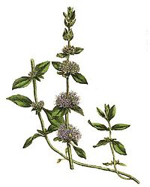“God did not make death, nor does He rejoice in the destruction of the living. For He fashioned all things that they might have being; and the creatures of the world are wholesome, and there is not a destructive drug among them…” (From this month’s first liturgical reading, Wisdom 1:13-14). Hmm….
Today marks the 50th year anniversary of the encyclical Humanae Vitae, written by Blessed Pope Paul VI, 1968, about which the U.S. Catholic Bishops state that it “provides beautiful and clear teaching about God’s plan for married love and the transmission of life.” That it does, including reaffirmation of the Church’s constant and arguably infallible teaching (according to the Ordinary Magisterium, the conditions for infallibility of which are presented in Lumen Gentium 25) concerning its condemnation of abortion, sterilization, and contraception. In addition, Humanae Vitae foretells that, if the Church’s teaching on contraception is ignored, then we, society, would see the following. First, widespread contraceptive use will “lead to conjugal infidelity and the general lowering of morality.” Second, men will lose respect for women and treat them selfishly. Third, widespread contraceptive use will be a dangerous weapon among those public authorities who are unconcerned with moral vision and obligation. Fourth, increased use of contraception will lead people to think that they have unlimited dominion over their bodies.
Of course, with the exception of couples who reaped the benefits of fidelity to the teachings of Christ’s Church on sexuality (of which Pope Paul VI also spoke), the world—including many in the Church—dismissed the wisdom of Humanae Vitae and plunged more deeply into the darkness of corruption and sin.
“What came to be through Him was life, and this life was the light of the human race. The light shines in the darkness, and the darkness has not overcome it” (John 1:3-4).
 So what does the Light of the world, Jesus Christ, have to say about contraception and abortion in Scripture? Surprisingly to many, and strikingly, some very strong words. Dei Verbum and the Catechism of the Catholic Church (110) assert that to discover in Scripture the sacred author’s intention, “the reader must take into account the conditions of their time and culture,” among other things. Perhaps in error in ascertaining these conditions, a common mistranslation in the Bible occurs in Saint Paul’s Letter to the Galatians 5:20 and the Book of Revelation 9:21, 18:23, 21:8, and 22:15, in which the word pharmakeia or its cognate is most often rendered sorcery, witchcraft, magic spell, or magic arts.
So what does the Light of the world, Jesus Christ, have to say about contraception and abortion in Scripture? Surprisingly to many, and strikingly, some very strong words. Dei Verbum and the Catechism of the Catholic Church (110) assert that to discover in Scripture the sacred author’s intention, “the reader must take into account the conditions of their time and culture,” among other things. Perhaps in error in ascertaining these conditions, a common mistranslation in the Bible occurs in Saint Paul’s Letter to the Galatians 5:20 and the Book of Revelation 9:21, 18:23, 21:8, and 22:15, in which the word pharmakeia or its cognate is most often rendered sorcery, witchcraft, magic spell, or magic arts.
In the ancient Greco-Roman world—not unlike the Ancient Near East—practicing magic was prevalent. It involved the use of evil spells, curse tablets, contraceptive and abortive potions (specifically, often herbal drinks, pastes) and, less often, generally deadly poisons (all called pharmakeia), amulets, and love potions. The contraceptive and abortive potions were numerous and highly demanded; examples were silphium and acacia to contracept, and pennyroyal tea to abort. Written documentation of contraception and abortion go back to nearly 2,000 B.C. In Scripture, one example of a sterilized, contraceptive act apart from pharmakeia is in Genesis 38:6-11.
In antiquity, pharmakeia was the Greek word for these potions, and their users typically distinguished between contraceptive and abortive blends, although they both were categorized as pharmakeia. These were commonly and more effectively used methods to contracept and abort, and so were representative of contraception and abortion in Scripture. Church Fathers and early ecclesial documents, such as The Teaching of the Twelve Apostles, also refer to and condemn these anti-fertility practices.
In Scripture, to refer to this as generic magic or sorcery misses the specificity for which pharmakeia was intended. In the Old Testament, contraception and abortion also were practiced in this way. In the reading from Wisdom above, the Greek words for “destructive drug” are pharmakon olethru. This may refer to both deadly poison and abortive potion, since its immediate context refers to the integrity of creation and generation of life, over and against death. Exodus 22:17, because of its feminine identification and overall context, and Malachi 3:5, because of its context, also are likely references to contraception and abortion, or at least to sorcerous activity (keshef in Hebrew) that includes them.
The immediate context of the above references to Galatians and Revelation was condemnation of common sins that centered around sexual immorality, murder, and idolatry. Idolatry was frequently associated with temple prostitution and its consequences. So, in Galatians, Saint Paul condemns acts of sinful nature: sexual immorality, impurity, lewdness, idolatry, pharmakeia, and several more. The context here, and in the following, does not favor pharmakeia meaning the much less frequented administering of deadly poison to members of the general population, and this overtly homicidal meaning would be particularly redundant on those lists that include murder. Pharmakeia may have been that broadly intended—referring to contraceptive and abortive potions and occasional administration of poison—but probably meant the former restrictively. An exception is Revelation 18:23, in which pharmakeia seems to refer specifically and metaphorically to deadly poison.
So, the translation probably should read as follows in Revelation. Rev 9:21 lists murders, contraceptive and abortive potions (pharmakeion), sexual immorality, and thefts. In Rev 21:8 and 22:15, the risen Jesus Himself condemns certain representative sins. Rev 21:8: “But the cowardly, the unbelieving, the vile, the sexually immoral, the ones using contraceptive and abortive potions, the idolators, and all practicing falsehood—their place will be in the fiery lake of burning Sulphur. This is the second death.” Rev 22:15: After pronouncing eternal blessing on the righteous (see 22:11 and 22:14), Jesus, the Alpha and Omega, declares, “Outside are the dogs, the ones using contraceptive and abortive potions, the sexually immoral, the murderers, the idolators, and all who love and practice falsehood.”
Why would Christ condemn contraceptive and abortive potions? Simply, I think He does so because marriage is a profound, intimate union (Genesis 2:24), procreation is a divine blessing and mandate of this union (Genesis 1:28) for those who are able, children are a gift (e.g., Psalm 127:3), and children in the womb are acknowledged as really alive and sacred (e.g., Psalm 139:13-15, Jeremiah 1:15, Luke:1:39-45). To deliberately sterilize sex, or worse—murder an unborn child—is a serious offense against God and the human person. I think Humanae Vitae is just beautifully and boldly echoing the divine and exalted plan for married love and the transmission of human life.
Mark Koehne teaches Sacred Scripture for Saint Joseph’s College Online Theology Programs,

